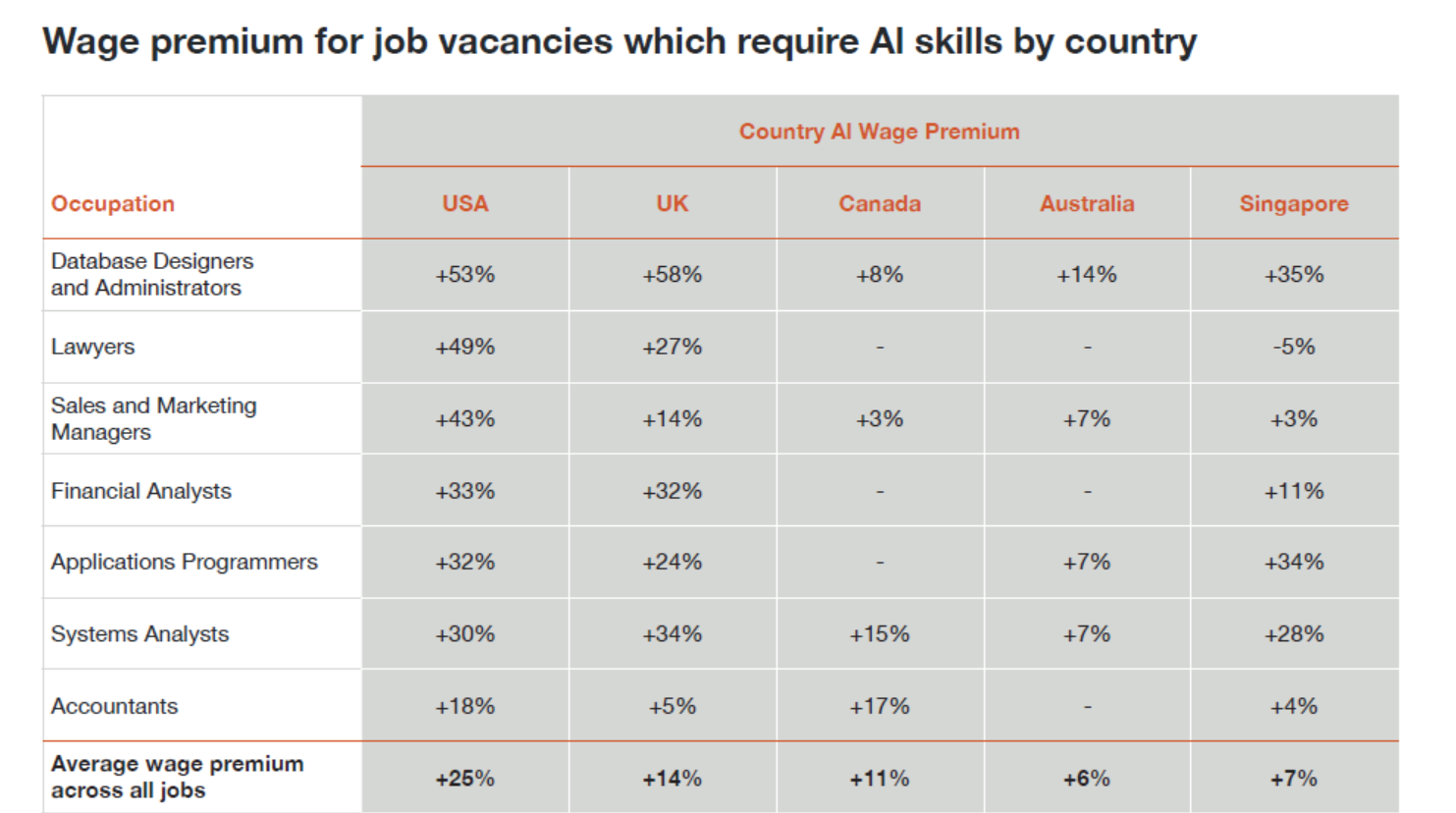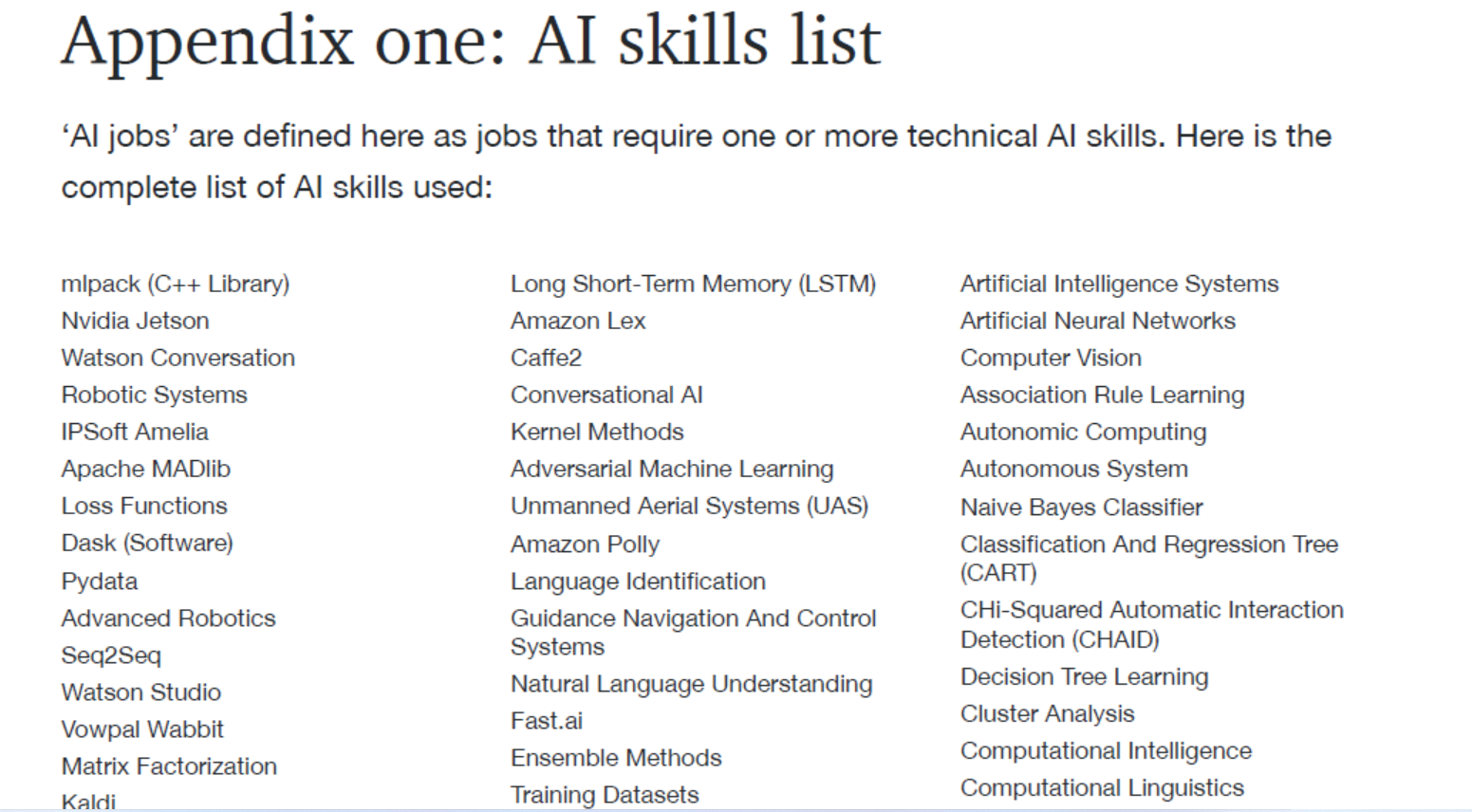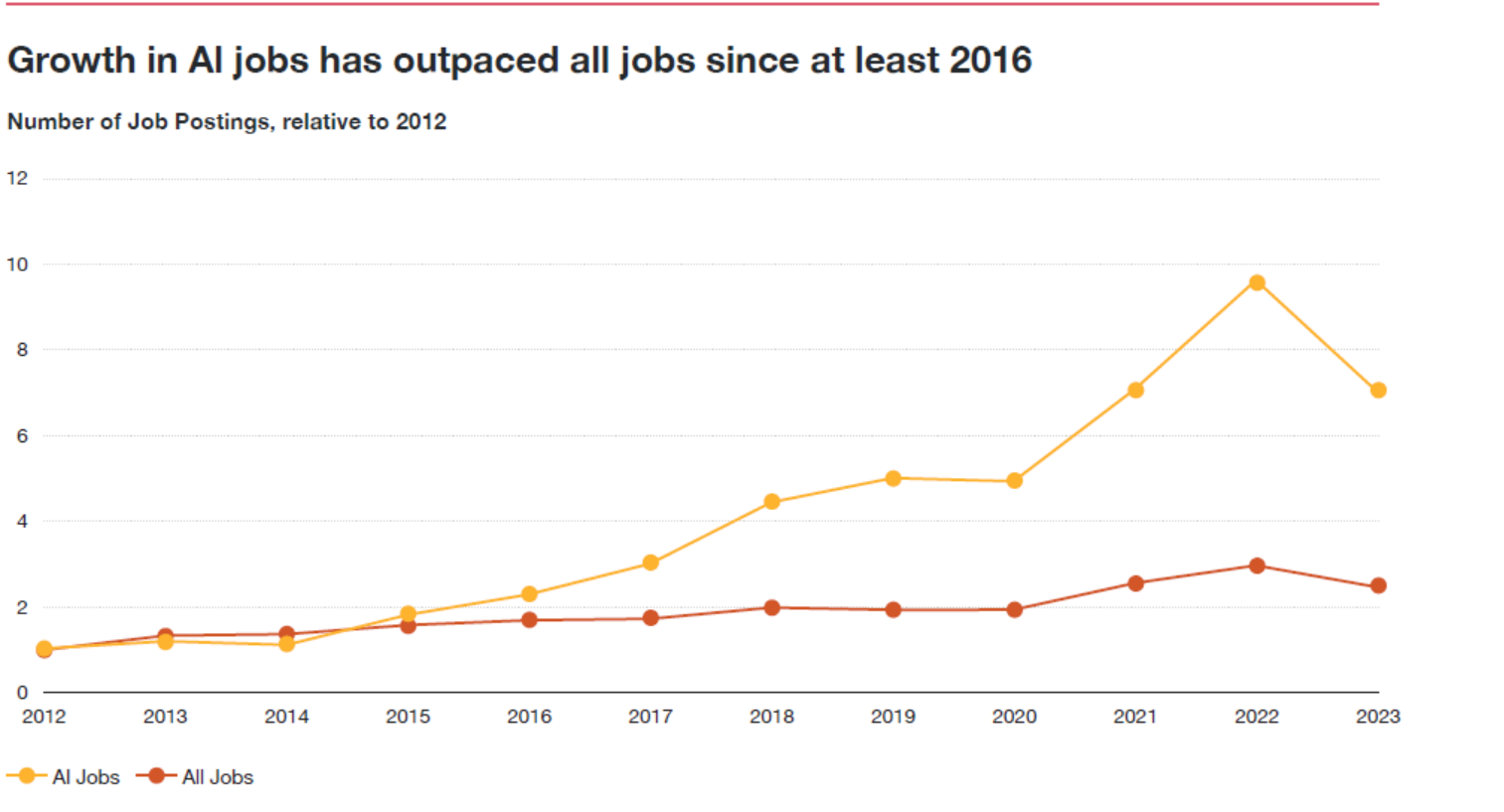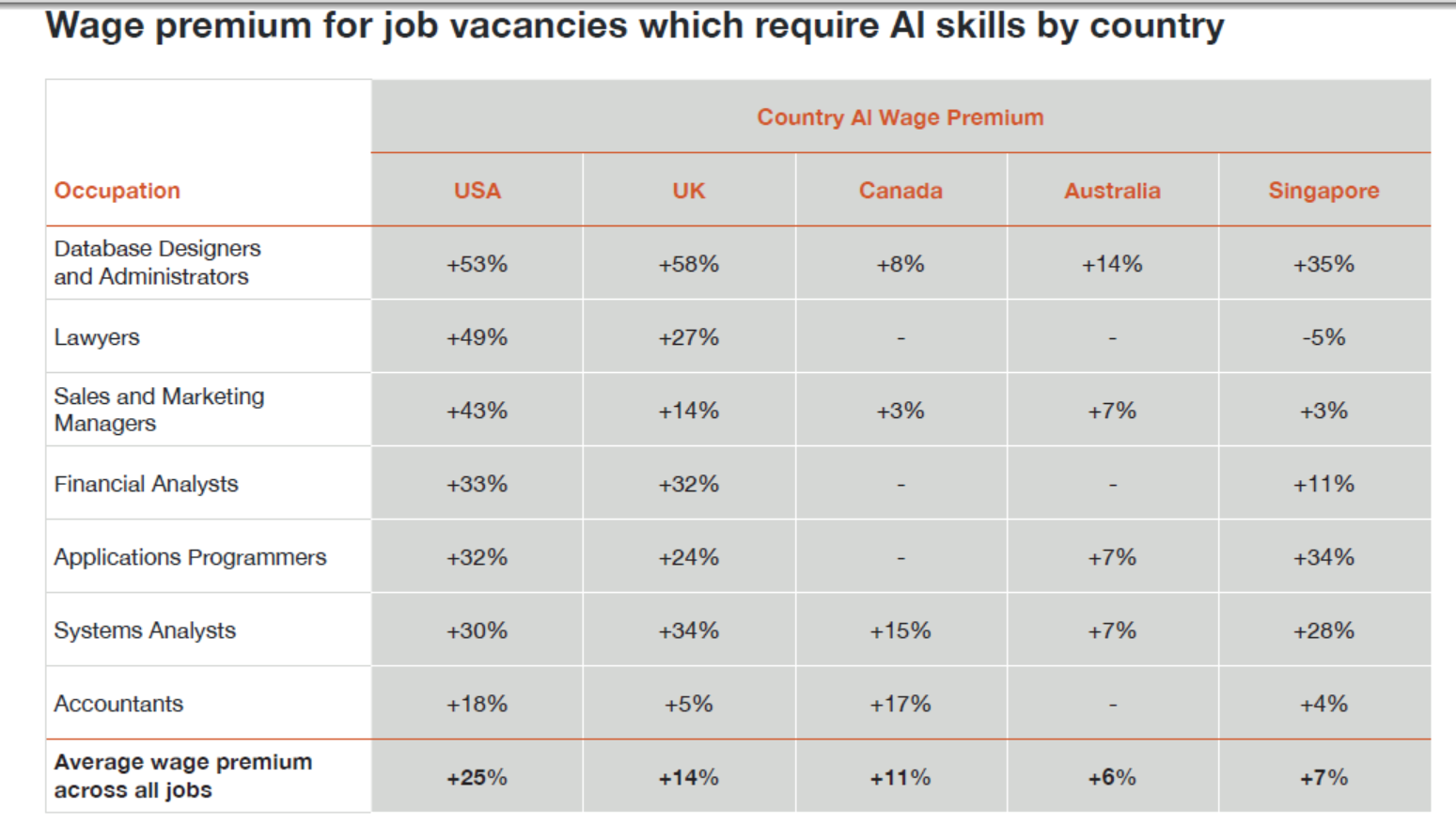Lawyers With AI Skills Earn A 49% Wage Boost
You'll be happy to hear that research undertaken by the finance firm PWC has revealed that lawyers with AI skills could earn 49% more on average than their non-AI-skilled US counterparts. In the UK the number is slightly lower, but still significantly high. The wage increase comes down to the fact that lawyers who utilize AI are more 'productive'. Not busy, but productive. On average they get more billable work done thanks to the help from AI. Since practicing law involves a lot of admin/non-billable work, the best way to get more work done is to utilize AI tools like drafting and CLM tools. The research also revealed that using AI in other sectors has the same impact. Sectors with the highest AI penetration are seeing almost fivefold greater labor productivity growth.
Below are the average AI wage premiums for five countries and different occupations for which there was sufficient data to perform the analysis. US employers are willing to pay a 49% wage premium for lawyers equipped with AI skills, and UK employers are willing to pay 27%.

Wage premiums for jobs that require AI Skills
Initially, I thought the 49% wage increase was limited to big law and magic circle law firms which are the leading implementors of AI, but we don't know that law firms that implement AI tools are paying their associates more. Turns out it is new hires with AI skills that are being offered nearly 50% more than non-technical associates. From the job ads that were used to conduct the research the message was clear; you earn more if you have AI skills. That applies even to attorneys.
So which AI skills are firms looking for?
The research points to many relevant AI skills, such as general machine learning or neural networks. PWC has also provided us with a comprehensive list if you are interested. You don't have to learn everything on the list, learn just a few, and specialize instead of trying to know a bit of everything. 'And don't let the use of words like 'specialist' deter you from getting started. The research also showed that employees who know how to operate generative AI tools are making as big an impact in the field of law, without necessarily having 'technical skills' in the traditional sense. Below is the list of AI skills that are in demand.

Growth in AI jobs
No need to leave your legal job just yet, you only have to expand your skill set to see career growth. You'll be interested to know that growth in AI jobs has outpaced all jobs since at least 2016, well before ChatGPT entered the scene. There are many more postings for AI-related jobs than other jobs. Put differently, job openings for AI specialists have grown 3.5 times faster than all jobs since 2012. The value that these skills bring to employers is evident by the 49% wage premium that employers are giving. I believe that if you run your firm, you would experience a similar increase in productivity/profitability.

Growth in AI jobs has outpaced all jobs since at least 2016
How does AI benefit law firms?
The data shows that professional services sectors like law, IT, and finance are seeing nearly 5X faster productivity growth than sectors with lower AI exposure like transportation. The good news is that many, if not most workers who use AI tools in their work do not have specialist skills. For a law firm looking to increase their productivity without raising their labor costs, introducing the 'right' legal AI tools may be the solution. I may be biased in this regard because I prefer the route of training existing attorneys as opposed to hiring attorneys with AI skills. You don't want a situation where you overlook legal talent for lacking AI skills when you can easily hire a third party to train your associates. That said, new technologies can take significant time to cause a sharp uptick in productivity, but the productivity increase is evident in firms that introduce AI tools.
Increasing productivity means more than just doing the old things faster, it also means finding new, AI-powered ways to create value. PWC predicts that generative AI will increase productivity further and as a result, will increase profitability. AI is helping to ease labor shortages in law firms. Law firms, especially new ones, can't afford to have a big payroll and AI can help fill in those labor gaps. AI exposure in a field does not lead to job losses, that common misconception is simply not true. The job losses are replaced with new jobs. The data suggests that AI does not herald an era of job losses, but rather, more gradual job growth.
Where does this leave you?
If you are an employer, you will likely require most of your workforce to develop new skills. You can contract a third party to train your staff, or you can choose to focus your hiring efforts on attorneys with those skills. For lawyers looking for legal and AI roles, you may need to demonstrate or acquire new skills to stay relevant in a job market that is fast evolving. Whether you are applying for a new job, or staying in your current role, either way, generative AI will be embedded in your job in some way and you will need to develop new skills.
Side Notes: You may be interested to know that Singapore is the country with the highest proportion of AI-related job vacancies. This may be why Robin AI has opened a new office in Singapore. There are many opportunities there for people who can move.

Concluding remarks
The job market is never going back to the way that it was before AI. But many opportunities await those who adapt to an AI age. Employees who learn to harness AI in their jobs are likely to have lucrative careers because they'll have greater bargaining power for higher wages. Far from heralding the end of jobs, AI signals the start of a new era in which workers can be more productive and valuable than ever.



